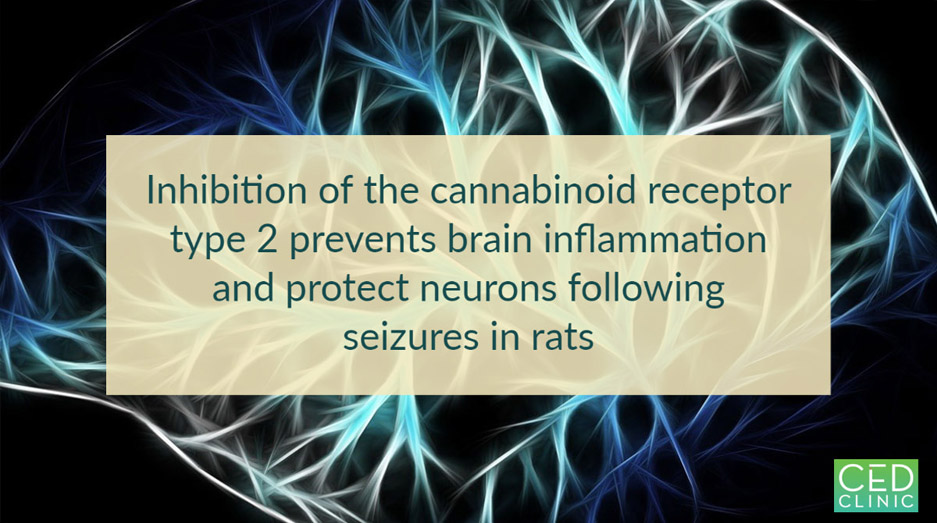When the brain is attacked by infections, microglia, the immune cells that reside inside and regulate inflammation in the brain, are activated and initiate inflammatory processes to destroy the foreign pathogens and protect neurons. However, when the inflammatory reaction is too powerful and long-lasting, increased neuronal excitability, lowered seizure threshold, and subsequently neural death may result. These events manifest as seizures in general, and status epilepticus in particular. Status epilepticus (SE) is a seizure that lasts for longer than 5 minutes or a series of continuous seizures where patients can’t recover in between.
Cannabinoid receptor type 2 is widely expressed in microglia but not in neurons. Especially upon infection, microglia are activated to rapidly increase their expression of CB2. Therefore, compounds that bind to and change the activity of this receptor don’t affect the psychological state but may exert anti-inflammatory benefits to the brain.
Pre-clinical research using rats has recently resulted in a drug candidate for SE. A blocker of the brain CB2 receptor, this compound has been demonstrated to decrease the inflammatory reactions in activated microglia and protect neurons from being damaged and killed in rat hippocampal tissues. In addition, transient treatment with this compound after an episode of SE subsequently reduced inflammation and prevented seizure, neuronal death, and behavioral impairments in lab rats when SE was induced again. These evidence support the hypothesis that targeting the CB2 receptor represents an appealing therapeutic strategy to reduce brain inflammation and damage following prolonged seizures.

